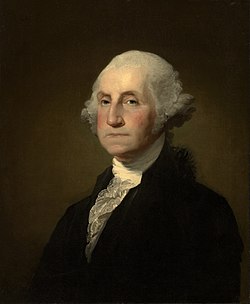| |||||
| Decades: | |||||
|---|---|---|---|---|---|
| See also: | |||||
| 1789 in the United States |
| 1789 in U.S. states |
|---|
| States |
| List of years in the United States by state or territory |
Events from the year 1789 in the United States. The Articles of Confederation, the agreement under which the nation's government had been operating since 1781, was superseded by the Constitution in March of this year.


